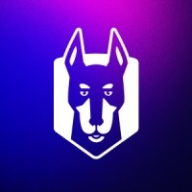

Red Hat Advanced Cluster Security for Kubernetes and Snyk are competing in the Kubernetes security space. Red Hat's seamless integration with Kubernetes platforms grants it an edge in ecosystem compatibility, while Snyk's wide-ranging developer tools enhance its appeal for broader security coverage.
Features: Red Hat Advanced Cluster Security for Kubernetes strengths lie in its customized visibility, risk assessment, and runtime threat detection within Kubernetes environments. It leverages Kubernetes-native controls effectively. On the other hand, Snyk provides comprehensive open-source security management with Infrastructure as Code (IaC) scanning, integrating seamlessly with developer workflows and various development tools.
Room for Improvement: Red Hat could enhance its user interface to reduce the complexity involved in its robust Kubernetes-specific features. Additionally, expanding its security capabilities beyond Kubernetes environments would increase its versatility. Snyk could improve by addressing false positives and enriching its vulnerability database. Increasing its Kubernetes-specific functionalities would further strengthen its offering. Enhancement of its user interface for more intuitive use could also be beneficial.
Ease of Deployment and Customer Service: Snyk's cloud-based deployment provides an intuitive setup, facilitating quick accessibility and management across various environments. Red Hat, although delivering robust customer support, requires more effort in deployment due to its deep Kubernetes integration, potentially leading to a steeper learning curve. Snyk's seamless onboarding is favorable for those seeking rapid implementation, whereas Red Hat suits organizations with significant Kubernetes infrastructure.
Pricing and ROI: Red Hat Advanced Cluster Security for Kubernetes commands higher prices, reflecting its extensive integration but offering high ROI through enhanced Kubernetes security management. Snyk provides competitive pricing, appealing for its cost-effectiveness in extensive vulnerability coverage, offering a more immediate ROI for developer-focused security solutions. Red Hat's ROI shines in dedicated Kubernetes environments, while Snyk offers broader financial benefits across diverse applications.
| Product | Market Share (%) |
|---|---|
| Snyk | 4.8% |
| Red Hat Advanced Cluster Security for Kubernetes | 2.1% |
| Other | 93.1% |


| Company Size | Count |
|---|---|
| Small Business | 6 |
| Midsize Enterprise | 2 |
| Large Enterprise | 4 |
| Company Size | Count |
|---|---|
| Small Business | 21 |
| Midsize Enterprise | 9 |
| Large Enterprise | 21 |
Red Hat Advanced Cluster Security for Kubernetes is a Kubernetes-native container security solution that enables your organization to more securely build, deploy, and run cloud-native applications from anywhere. With its built-in security across the entire software development life cycle, you can lower your operational costs, reduce operational risk, and increase developer productivity while improving your security posture immediately. In addition, Red Hat Advanced Cluster Security integrates with security tools and DevOps in an effort to help you mitigate threats and enforce security policies that minimize operational risk to your applications. It also enables you to provide developers with actionable, context-rich guidelines integrated into existing workflows, along with tooling to support developer productivity. The solution is suitable for small, medium, and large-sized companies.
Red Hat Advanced Cluster Security for Kubernetes Features
Red Hat Advanced Cluster Security for Kubernetes has many valuable key features. Some of the most useful ones include:
Red Hat Advanced Cluster Security for Kubernetes Benefits
There are many benefits to implementing Red Hat Advanced Cluster Security for Kubernetes. Some of the biggest advantages the solution offers include:
Reviews from Real Users
PeerSpot user Igor K., Owner/Full Stack Software Engineer at Maraphonic, Inc., says, “The solution allows teams to create their own virtual spaces and share resources. The most valuable feature is the ability to share resources.”
Snyk excels in integrating security within the development lifecycle, providing teams with an AI Trust Platform that combines speed with security efficiency, ensuring robust AI application development.
Snyk empowers developers with AI-ready engines offering broad coverage, accuracy, and speed essential for modern development. With AI-powered visibility and security, Snyk allows proactive threat prevention and swift threat remediation. The platform supports shifts toward LLM engineering and AI code analysis, enhancing security and development productivity. Snyk collaborates with GenAI coding assistants for improved productivity and AI application threat management. Platform extensibility supports evolving standards with API access and native integrations, ensuring comprehensive and seamless security embedding in development tools.
What are Snyk's standout features?Industries leverage Snyk for security in CI/CD pipelines by automating checks for dependency vulnerabilities and managing open-source licenses. Its Docker and Kubernetes scanning capabilities enhance container security, supporting a proactive security approach. Integrations with platforms like GitHub and Azure DevOps optimize implementation across diverse software environments.
We monitor all Container Security reviews to prevent fraudulent reviews and keep review quality high. We do not post reviews by company employees or direct competitors. We validate each review for authenticity via cross-reference with LinkedIn, and personal follow-up with the reviewer when necessary.